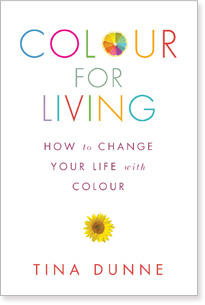 Your Health : Cholesterol Your Health : Cholesterol
Click on the links below for information on :
Fatigue ¦ Stress ¦ Cholesterol ¦ The Glycaemic Index
What is Your Cholesterol Level?
What is Cholesterol?
Cholesterol is one of the body's fats or lipids. It is important in producing hormones and helps maintain healthy body cells. Too much cholesterol in the body is not a disease in itself, but can cause hardening and narrowing of blood vessels. This in turn, increases the risk of problems such as; heart attacks and strokes. In many cases a high cholesterol level is due to a poor diet, but in other cases the person will have inherited the tendency regardless of dietary factors.
Cholesterol is measured by a blood test conducted after a 12 hour fasting period. In Ireland, the average cholesterol level is just under 6 mill moles per litre (mmol/l) of blood. It is recommended that a reading of below 5mmol/l is healthy. Therefore the average person suffers from high cholesterol.
There are two types of cholesterol: low density lipo-protein (LDL) or bad cholesterol and high-density lipo-protein (HDL) or good cholesterol. HDL is carried in the blood away from arteries and levels should be higher than 3mmol/l whereas LDL levels need to be below 3mmol/l. A healthy balance between them is desired as an imbalance can cause heart disease.
Why get a Cholesterol Test?
Not only will you know what your cholesterol level is, the test can also rule out other conditions such as an under-active thyroid, diabetes, kidney and liver problems. Also your doctor can determine whether you have familial hypercholesterolemia. This is an inherited condition in which the liver produces too much cholesterol. It is mainly treated with drugs called statins. These help to reduce the amount of cholesterol the body makes each day. There is a down side to using these drugs and side effects include muscle inflammation and muscle breakdown. But for the majority of people, raised cholesterol levels are largely due to diet.
What to Do When Cholesterol Is High
Give your larder a cleanse. Cut out fatty foods such as pastries, puddings, ready made meals, biscuits and cakes and be watchful of some breakfast cereals. Many of these products contain the lethal saturated fats called Trans-fats.
Always remember to read and check food labels; avoiding foods with 5g or more of saturated fats per 100g serving. Try to choose items with less than 3g fat per 100g serving. It is good to eat lots of fresh fruits and vegetables the top three include; avocados, pomegranates and pears. Avocados contain beta-sit sterol - a super nutrient that blocks cholesterol absorption through the intestine wall. Pomegranates boost levels of paraoxonase enzyme, which attacks and breaks down cholesterol patches on every artery. Pears are an excellent source of pectin - this soluble fibre is not only a valuable bowel regulator it also helps eliminate cholesterol. Soluble fibre such as; oats, apples, peas, beans and kidney beans are also good for combating high cholesterol levels due to their beta-glucan fibre content.
|
